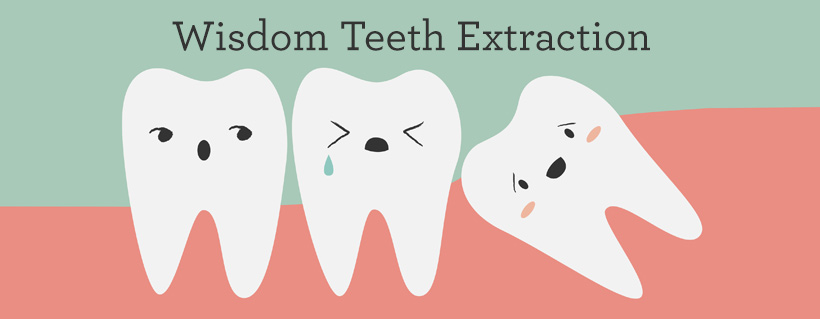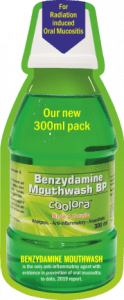Menu

Date: 22nd. Nov. 2017
We have all heard of wisdom teeth and how they cause excruciating pain for many people. But have you ever wondered why they are called wisdom teeth? Humans are said to grow wiser with age and wisdom teeth usually erupt between late teens to early twenties — making them symbols of maturity and development.
A common concern surrounding wisdom teeth is their removal. However, some people don’t need to have their wisdom teeth extracted, while others are forced to go through the painful process. If you’re here, it is likely that you or someone you know is about to have a wisdom tooth extraction.
In this article, we will talk about wisdom teeth and the things you need to know about the extraction procedure.
Wisdom teeth are the last set of posterior molars (grinding teeth) located at the extreme back of the mouth. While most people have wisdom teeth, some people can have more than 4 and for others still, they never grow. These teeth usually erupt through the gums and can cause varying degrees of discomfort from person to person.
From an evolutionary standpoint, wisdom teeth are no longer needed by the human body. They were once needed for chewing raw and hard foods like leaves, nuts, meats, etc. But, our modern diet now includes softer foods that are easier to chew. This is believed to be the reason why some people don’t even get wisdom teeth anymore.
If wisdom teeth fully erupt through the gums, have ample space, and are well-positioned in relation to other teeth, then there is little or no indication of them erupting. However, this isn’t how it works in most cases. For the most of us, at least some symptoms are expected. Recognizing these symptoms early on can help you consult your dentist soon and address any potential problems that may arise.
The following are some of the common symptoms that indicate that your wisdom teeth are coming out:
Gum or jaw pain is the most common symptom of erupting wisdom teeth. You may experience a feeling of pressure or a dull throbbing near the opening of your throat. Since the new tooth erupts from the gum tissue, it tends to cause irritation. This gets worse if the tooth is growing crookedly or if your jaw is too small for new teeth.
Redness and inflammation are often accompanied by wisdom teeth, which may cause discomfort while chewing and swallowing food. In addition, the lower set of wisdom teeth are closer to the tonsils. So, if they are about to erupt, you may feel like you have a sore throat. Luckily, the swelling and inflammation usually go down in a week after the eruption. If not, then you should visit your dentist and discuss the course of treatment.
Sometimes, wisdom teeth don’t cause pain or swelling so many people don’t even notice that theirs have come in. However, within a few weeks of the eruption, they begin to push the other teeth out of alignment. So, if you notice a change in your smile, then it means that your wisdom teeth have begun to come out.
Misaligned and impacted teeth are the biggest reasons for people having their wisdom teeth removed. When your wisdom teeth are growing at an angle, there’s a good chance that they will cause problems with your existing teeth. A misaligned tooth can cause crowding and damage neighbouring teeth, gums, jaw, and even nerves.
An impacted tooth refers to a tooth that cannot break through the gum line due to being blocked by other teeth. In some cases, there isn’t enough space for the wisdom tooth to come in due to crowding. This can cause intense pain and possibly damage the gums. Such wisdom teeth can put your oral health at risk, making it necessary to have them extracted.
While wisdom tooth extraction is a common procedure, it involves a significant recovery time. Here are some tips that will help you before and after the procedure:
During a tooth extraction procedure, your dentist will put you under local anaesthesia. And if required, general anaesthesia, causing you to sleep through the process. The effects of anaesthesia usually take a few hours to wear off, so you will need a friend or family member to drive you back.
Moreover, they can provide moral support and take a note of any instructions your dentist may want you to follow.
After your extraction, you will experience swelling in your jaw for 2-3 days. Usually, the swelling is maximum a day after the procedure, after which, it gradually subsides. By keeping your head raised after the extraction, you can reduce the fluids from gathering and keep the swelling and bleeding (if any) under control.
Your dentist must have recommended that you apply ice on the swelling as well to help it subside. Do it as frequently as you can for a speedy recovery.
The extraction procedure can be pretty rough on your gum tissue. So, to avoid aggravating the area, make sure that you only eat soft foods and avoid anything hard or crunchy. Your diet should have more clear soups and fruit juices than solid food. This will help you avoid infections and allow your mouth to heal.
As mentioned before, the procedure involves some recovery time. In addition, your dentist may prescribe you some heavy pain medication. So, make sure that you don’t stress yourself out while you’re recovering and get plenty of rest.
Make sure that you brush very carefully for some days after the surgery. If you don’t already use a soft-bristled toothbrush, then switch to one to avoid opening any stitches. Moreover, use an antibacterial mouthwash like Hexidine as it can help you in preventing infections.
The eruption of wisdom teeth is a natural part of growing older. While extracting them can be painful, it is necessary to do so if they risk jeopardising your oral health. We wish you a safe and complication-free extraction and a speedy recovery. Feel free to share your experience in the comments below.
References:


| PRODUCTS | QTY | PRICE | VALUE in INR |
|---|
| PRODUCTS | QTY | PRICE | VALUE in INR |
|---|